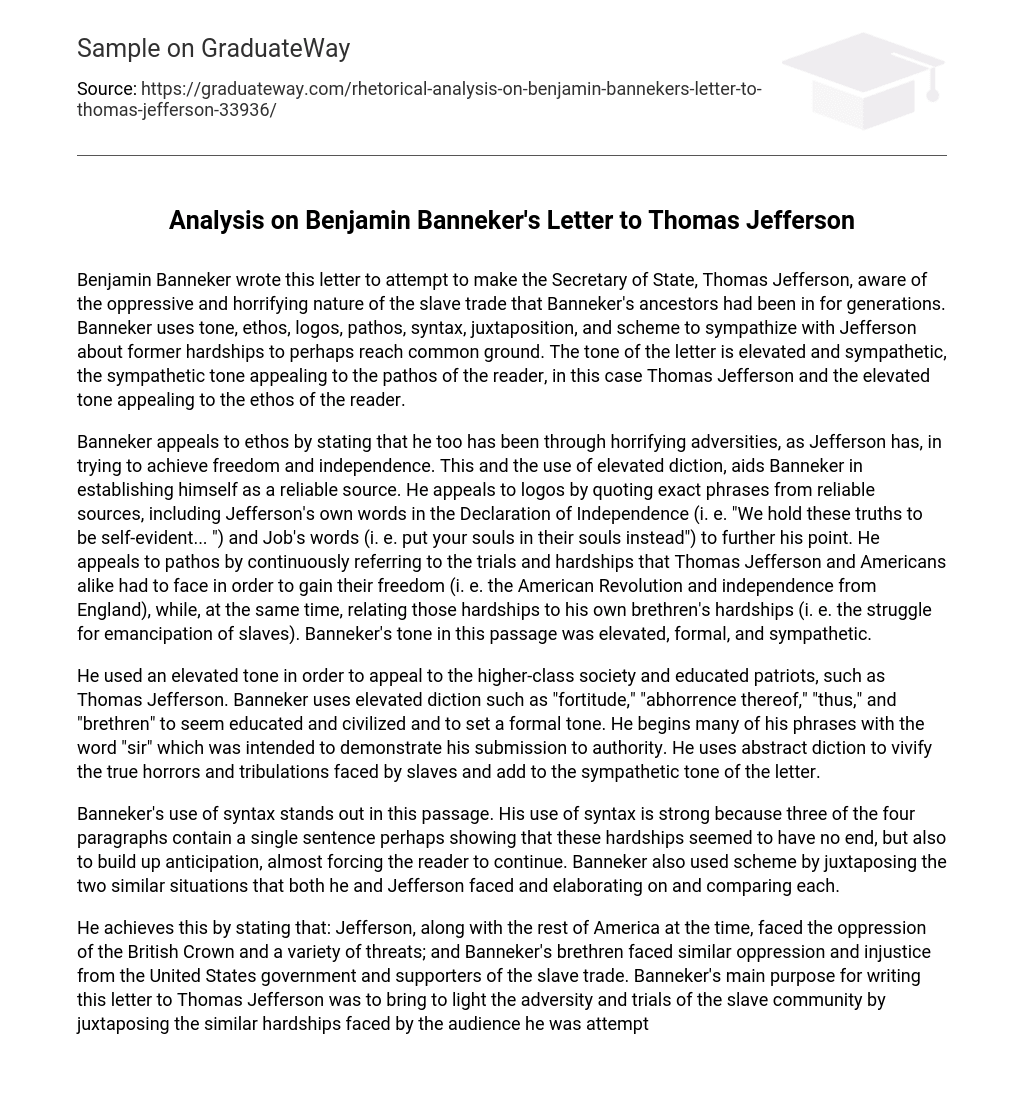Benjamin Banneker wrote this letter to attempt to make the Secretary of State, Thomas Jefferson, aware of the oppressive and horrifying nature of the slave trade that Banneker’s ancestors had been in for generations. Banneker uses tone, ethos, logos, pathos, syntax, juxtaposition, and scheme to sympathize with Jefferson about former hardships to perhaps reach common ground. The tone of the letter is elevated and sympathetic, the sympathetic tone appealing to the pathos of the reader, in this case Thomas Jefferson and the elevated tone appealing to the ethos of the reader.
Banneker appeals to ethos by stating that he too has been through horrifying adversities, as Jefferson has, in trying to achieve freedom and independence. This and the use of elevated diction, aids Banneker in establishing himself as a reliable source. He appeals to logos by quoting exact phrases from reliable sources, including Jefferson’s own words in the Declaration of Independence (i. e. “We hold these truths to be self-evident… “) and Job’s words (i. e. put your souls in their souls instead”) to further his point. He appeals to pathos by continuously referring to the trials and hardships that Thomas Jefferson and Americans alike had to face in order to gain their freedom (i. e. the American Revolution and independence from England), while, at the same time, relating those hardships to his own brethren’s hardships (i. e. the struggle for emancipation of slaves). Banneker’s tone in this passage was elevated, formal, and sympathetic.
He used an elevated tone in order to appeal to the higher-class society and educated patriots, such as Thomas Jefferson. Banneker uses elevated diction such as “fortitude,” “abhorrence thereof,” “thus,” and “brethren” to seem educated and civilized and to set a formal tone. He begins many of his phrases with the word “sir” which was intended to demonstrate his submission to authority. He uses abstract diction to vivify the true horrors and tribulations faced by slaves and add to the sympathetic tone of the letter.
Banneker’s use of syntax stands out in this passage. His use of syntax is strong because three of the four paragraphs contain a single sentence perhaps showing that these hardships seemed to have no end, but also to build up anticipation, almost forcing the reader to continue. Banneker also used scheme by juxtaposing the two similar situations that both he and Jefferson faced and elaborating on and comparing each.
He achieves this by stating that: Jefferson, along with the rest of America at the time, faced the oppression of the British Crown and a variety of threats; and Banneker’s brethren faced similar oppression and injustice from the United States government and supporters of the slave trade. Banneker’s main purpose for writing this letter to Thomas Jefferson was to bring to light the adversity and trials of the slave community by juxtaposing the similar hardships faced by the audience he was attempting to appeal to, Thomas Jefferson, using: a formal and sympathetic tone; elevated diction; scheme; and appeals to ethos, logos, and pathos.





